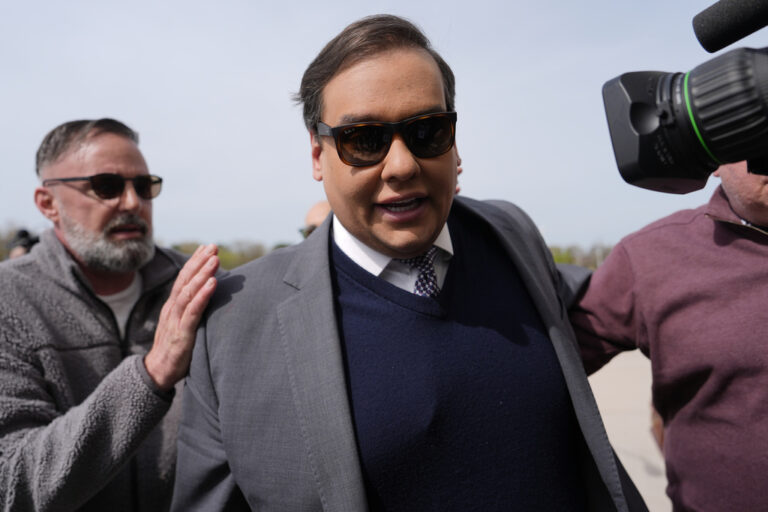U.S. Defense Secretary Lloyd Austin said Friday the United States stands with countries fighting Chinese “bullying behavior” as he launched bilateral talks in Australia aimed at countering Beijing’s growing influence in the Indo-Pacific region.
Austin and U.S. Secretary of State Antony Blinken arrived in the Australian city of Brisbane late Thursday ahead of annual bilateral meetings on Friday and Saturday that will focus on a deal to provide Australia, a defense treaty partner, with a fleet of submarines powered by U.S. nuclear technology.
Ahead of a meeting with Australian Defense Minister Richard Marles, Austin said both countries share concerns about China’s break from international laws and norms that resolve disputes peacefully and without coercion.
“We’ve seen troubling P.R.C. coercion from the East China Sea, to the South China Sea, to right here in the Southwest Pacific,” Austin told reporters, referring to the People’s Republic of China.
“We’ll continue to support our allies and partners as they defend themselves from bullying behavior,” he added.
China has imposed a series of official and unofficial trade barriers in recent years against Australian exports including coal, wine, barley, beef, seafood and wood. The barriers are widely seen as a punitive reaction to Australian government policy that has cost Australian exporters as much as $15 billion a year.
Australia’s icy relationship with Beijing was thawing since a change of Australian government at elections last year. Meanwhile, the sharing of U.S. nuclear secrets with Australia takes that bilateral relationship to a new level.
Prime Minister Anthony Albanese is planning state visits to both the United States and China before the end of the year.
Under the AUKUS partnership — an acronym for Australia, the United Kingdom and the United States — Australia will buy three Virginia-class submarines from the United States and build five of a new AUKUS-class submarine in cooperation with Britain.
Australian media have focused on a letter signed by more than 20 Republican lawmakers to President Joe Biden that warned the deal would “unacceptably weaken the U.S. fleet” without a plan to boost U.S. submarine production.
Albanese said he remained “very confident” that the United States would deliver the three submarines.
The prime minister said he’d been reassured by discussions he had with Republicans and Democrats earlier in July at a NATO summit in Lithuania.
“What struck me was their unanimous support for AUKUS, their unanimous support for the relationship between the Australia and United States,” Albanese said.
Marles agreed the AUKUS program was on track.
“Congress can be a complicated place as legislation makes its way through it, but actually we’re encouraged by how quickly it is going through it and we are expecting that there will be lots of discussions on the way through,” Marles said.
“Fundamentally, we have reached an agreement with the Biden administration about how Australia acquires the nuclear-powered submarine capability and we’re proceeding along that path with pace,” he added.
Australia understood there was “pressure on the American industrial base” and would contribute to submarine production, Marles said. The AUKUS deal is forecast to cost Australia up to 368 billion Australian dollars ($246 billion) over 30 years.
Albanese publicly welcomed Austin and Blinken at a media event before the three began a meeting with Marles, Foreign Minister Penny Wong, U.S. Ambassador to Australia Caroline Kennedy and Australian Ambassador to the United States Kevin Rudd, a former prime minister.
“The relationship between Australia and the United States has never been stronger,” Albanese told the two visitors.
(AP)












One Response
Speak loudly, and carry a politically correct small stick???